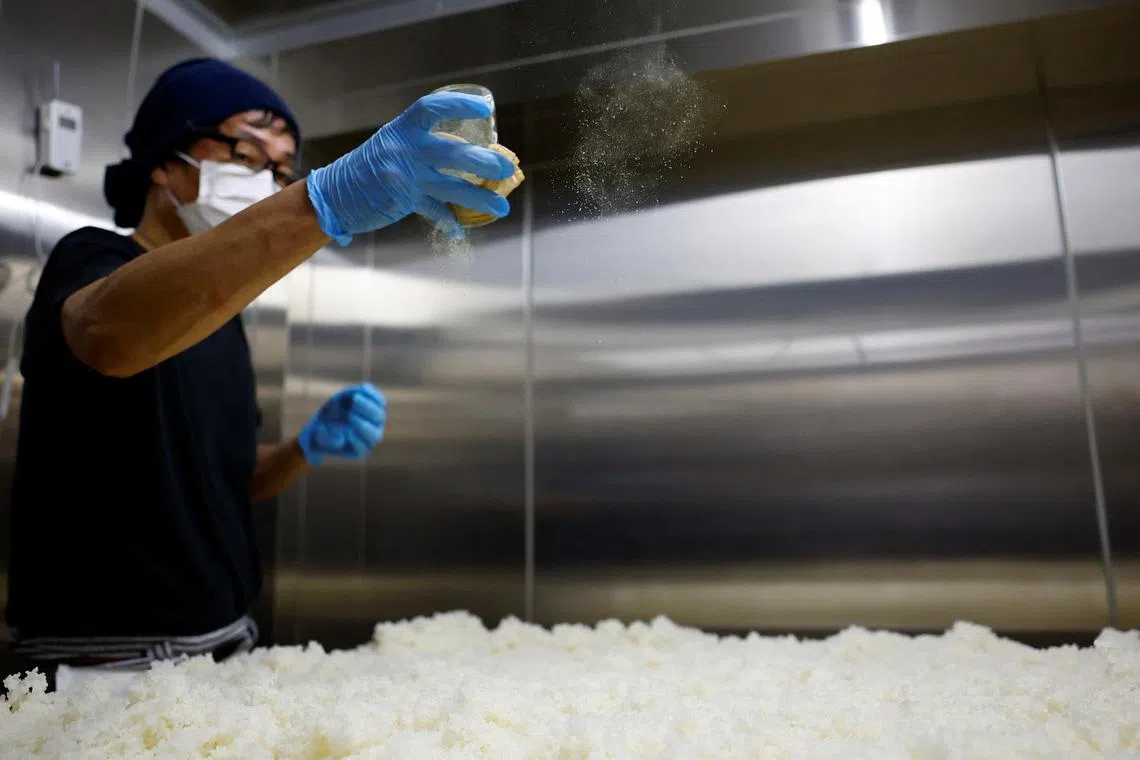Tourism, heat cut Japan rice inventory to 21st-century low
Sign up now: Get ST's newsletters delivered to your inbox

Rice demand by foreign tourists soared 31,000 tons to 51,000 tons, the ministry said.
PHOTO: REUTERS
Follow topic:
Tokyo - A tourism boom has helped cut Japan’s rice stockpile to the lowest this century as foreign visitors gobble up sushi, onigiri and other dishes with the staple, officials told AFP on July 31.
Bigger factors, however, were lower harvests caused by hot weather and water shortages,
Rice held in the private sector was 1.4 million tonnes in June, the lowest since comparable data began being collected in 1999 and a drop of 20.8 per cent year on year, ministry data showed on July 30.
“The chief reasons behind the record-low inventory is a decline in production last year due to high temperatures combined with water shortages, and the relative cheapness of rice prices compared to prices of other crops such as wheat,” farm ministry official Hiroshi Itakura told AFP.
“The increase in demand by foreign tourists has also contributed,” he said, but added that “we are not in a situation of facing shortages of rice”.
Japan welcomed 17.78 million tourists in the first half of 2024, a million more than pre-pandemic levels, figures showed earlier in July.
Besides the cherry blossom of Tokyo, the geishas of Kyoto and the majesty of Mount Fuji, a cheaper yen also has helped foreign visitors feel flush and boosted spending on everything from kimonos to meals.
The effect was also noticeable in data for rice demand, which rose for the first time in a decade in the 12 months to June 30, hitting 6.37 million tonnes, the farm ministry data showed.
Demand for rice has been falling for some time because of a falling population and changing eating habits by many Japanese as they opt for other carbohydrates such as pasta and potatoes.
Rice demand by foreign tourists soared 28,100 tonnes to 46,300 tonnes, the ministry said.
Japan in 2023 recorded its hottest September since records began 125 years ago, and since April 2024, heat has killed 36 people, according to the disaster management agency.
AFP

